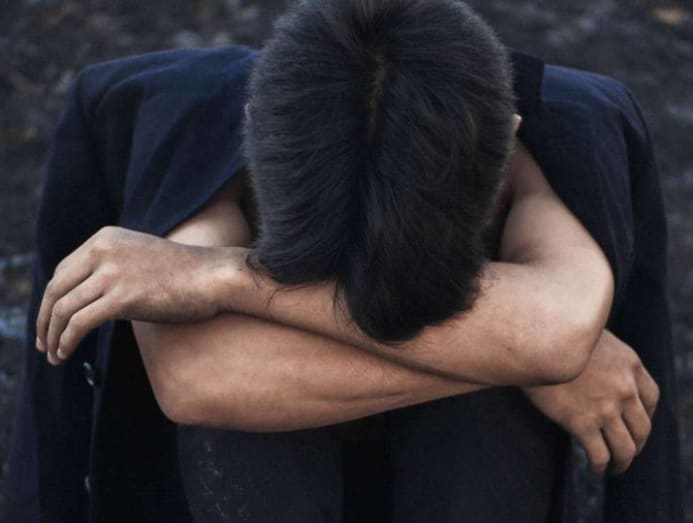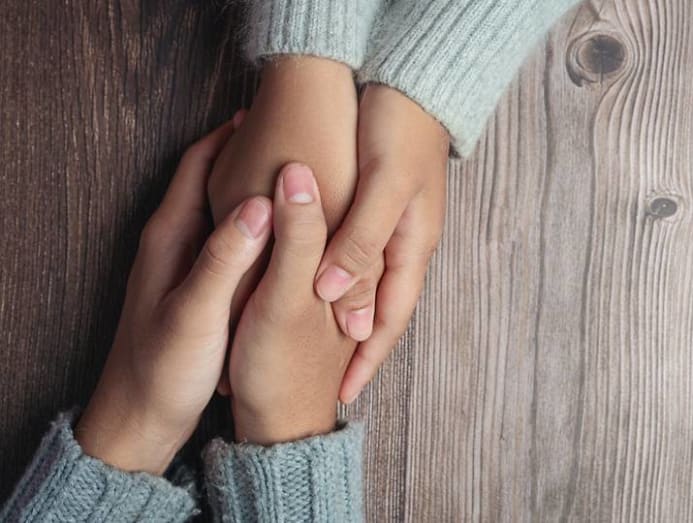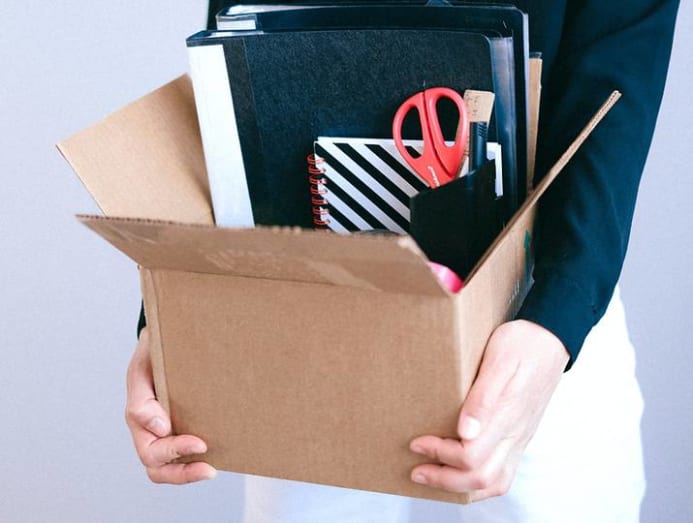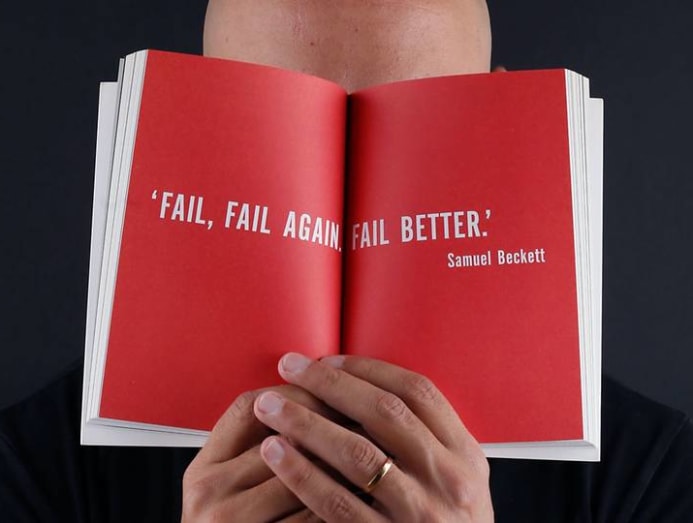When a pandemic meets holiday blues: How to cope with a doubly stressful year-end period
Financial instability, feelings of failure and fear for the uncertain future are some common issues that can make the holiday blues even bluer this year. Here are some helpful tips from experts to cope with the situation.

(Photo: Freepik/jcomp)
Let’s face it, this is not how we want the year to end: Travel is basically non-existent (maybe next time, ski slopes?), you’re still working from home (bye bye patience and sanity), and financial stability for some could be as firm as a soggy log cake (let's hold that phone upgrade).
While we do have a silver lining to look forward to in the form of Singapore’s post-Christmas Phase 3 and its promise of eight-people gatherings, this is truly an unusual December where the typical holiday blues that makes its way around this time of the year is compounded by a pandemic.
DOUBLE-WHAMMY STRESS
Whether you were naughty or nice this year, it feels like you’re getting a lump of coal in your stocking anyway. But maybe it’s time to examine the current situation further: How are the stresses created by the COVID-19 pandemic hitting us?
According to John Lim, the chief wellbeing officer of Singapore Counselling Centre (SCC), the prospects of death and major illness, as well as the isolation brought about by the pandemic, have added strain to individuals’ mental wellbeing.

There’s also the volatility of the situation that “prevents people from making plans and being hopeful for fear of disappointment”, he said. “The implications of the pandemic on the economy has also yet to fully set in, and this further increases anxiety levels as people are unable to look forward to things going back to pre-pandemic functioning any time soon.”
While the usual triggers of holiday blues – uncomfortable family gatherings, inadequate gifts, fatigue and stress from cooking and planning a Christmas dinner party – are probably slightly different this year because of social distancing measures, there are still some mood dampeners to watch out for.
The volatility of the situation prevents people from making plans and being hopeful for fear of disappointment.
For instance, “the absence of close connections may be especially difficult to cope with during the season of gatherings. People may feel a sense of loss and end up becoming withdrawn or isolated”, noted the Institute of Mental Health (IMH).
If you tend to be highly self-critical, the season of evaluation may just increase your blues, according to the IMH. You may feel bad if you rate yourself lower in your accomplishments than others would, or blame yourself for not meeting your own or others' expectations.
READ: How do you tell if it’s more than just a bad mood
You may also ruminate over the past and loved ones who have died. “Consciously or unconsciously, you have a mental record of previous holidays. Your mood may be contaminated by the spectre of sad holidays past,” said psychotherapist Maud Purcell on PsychCentral.
“All too often, your thoughts turn to beloved family members and friends who have passed away. The subsequent sense of loss you feel can spoil even the happiest of celebrations.”
PRACTISE GRATITUDE AND MINDFULNESS
There are many other triggers of holiday blues that can bring on feelings of anxiety, sadness and disappointment.
And as diverse as these grievances are, practising a little gratitude for what you have rather than what you may be missing out on could be the key to a Merrier Christmas and Happier New Year, said Dr Bobby Cheon, the principal investigator at the Singapore Institute for Clinical Sciences, a research institute of the Agency for Science, Technology and Research.

“People may not be able to go on holiday, gather in large family groups, or have as many nice things as previous holidays. But one way to deal with the holiday blues they cause is to exercise more mindfulness about the important needs in our lives that are still fulfilled,” he said.
Here’s how you can incorporate gratitude and mindfulness into these common year-end scenarios below:
YOU CAN’T AFFORD EXPENSIVE PRESENTS AND TREATS THIS YEAR
Purse strings are tighter this year, so it is a very real worry when it comes to gift exchanges. If you’re planning such an event, be mindful of participants’ financial concerns, and set comfortable budgets or opt-in systems, suggested Lim. “That way, people who are unable to afford the gifts do not feel singled out and stressed by having to give out of their means.”
One way to deal with the holiday blues they cause is to exercise more mindfulness about the important needs in our lives that are still fulfilled.
Conversely, there may be instances when you can’t avoid giving presents. In such situations, showing your gratitude doesn’t have to be done through luxury items or expensive meals like in previous years, said Lim. It can be homemade baked treats such as brownies or cookies, or even a handmade “thank you” card.
YOU'RE NOT IN THE MOOD TO CELEBRATE BECAUSE YOU'RE WORRIED ABOUT YOUR FUTURE
It is okay not to feel celebratory. Acknowledging your disappointment and giving yourself time and space to grieve the loss of your job are important steps to moving forward, said Lim. “Take some time to accept your feelings towards what happened, be it anger, disappointment or frustration.”
He advised: “Despite the discouragement and negativity you feel, don’t isolate yourself. Instead, seek out trusted people in your life and have heartfelt conversations about what you are going through. Social support and comfort can do wonders in lifting your spirit, and helping you feel more hopeful about the future”.

YOU CAN'T ATTEND OR ORGANISE BIG GATHERINGS
Keeping expectations realistic can help stave off the blues this season, said Dr Gary Small, the director of UCLA Longevity Center and a specialist in geriatric psychiatry. “It’s not about having the perfect Christmas dinner. It’s about connecting with the people you care about, and you can do that with video conferencing or smaller get-togethers outdoors.”
And while Zooming with the cousins isn’t the same as the usual big gathering over a spread of festive treats, spending time together – even virtually – is important for avoiding or diminishing a bout of the blues, said Dr Small.
It’s not about having the perfect Christmas dinner. It’s about connecting with the people you care about, and you can do that with video conferencing or smaller get-togethers outdoors.
On your part, it might help to reframe your perspective, said Lim. For instance, let go of situations you can’t control (such as not being able to have large gatherings) and instead, work within the confines of what you have and can do (such as helping the seniors in the family to get familiar with video calls).
YOU FEEL LIKE A FAILURE
You had big plans for 2020. It could be getting married, having a baby, moving house, changing jobs, or getting a Masters degree. But the pandemic happened and your plans had to be shelved or compromised. Now you’re left feeling like you haven’t accomplished anything.
“We are naturally programmed to be fixated on the negative things that happen to us since many of these goals are personally significant to us,” said Lim. However, he cautioned that this is not helpful to our mental wellbeing. “It makes us disgruntled with the things beyond our control, causing us to feel a lack of control over our lives and situations.”

To manage your feelings and stay positive, Lim recommended reframing your thoughts. Think about how you adapted to the situation. Or consider the option to continue to achieve those goals in the coming year instead.
YOU'RE FEARFUL OF WHAT 2021 MAY BRING
Lim said that you can manage the uncertainty ahead by anticipating change and making contingency plans. Having plans in place, even if it’s just mental preparation, is helpful in letting you adjust to the new normal, he said.
Building a strong social support network is also helpful in reducing your fear of uncertainty. “Authentic sharing and self-disclosure” with trusted friends and/or family members “are helpful in allowing us to feel supported and less alone in what we are going through”, said Lim.
“Our friends and family members can also be key people in checking our realities and reframing self-defeating thoughts, helping us perceive our situations more accurately.”





